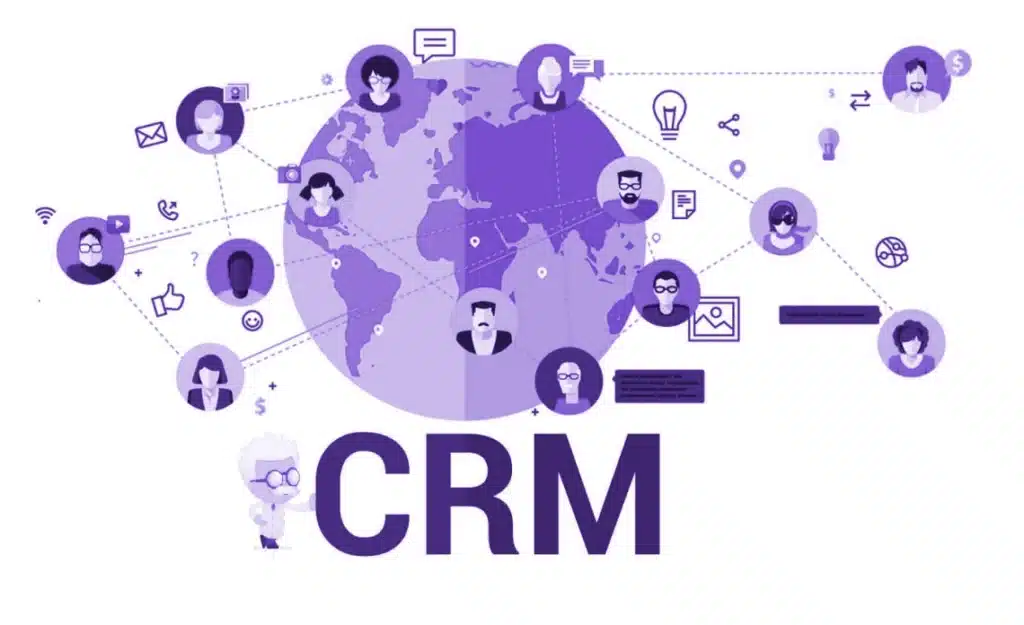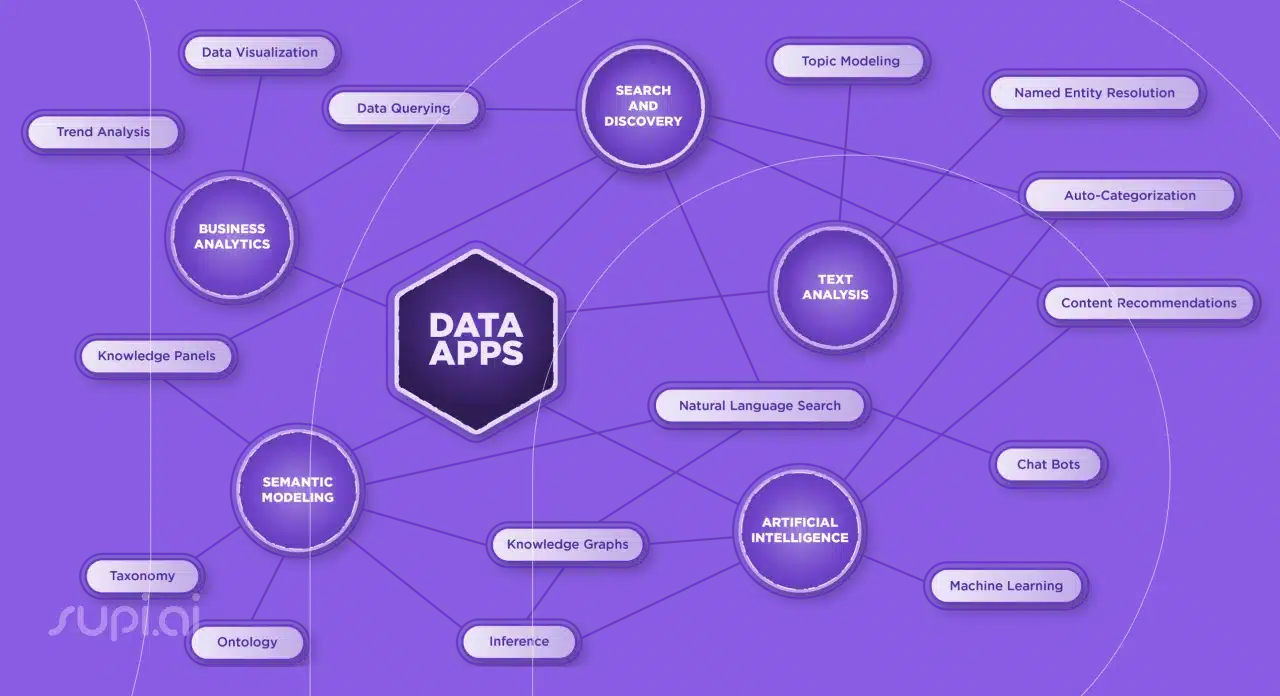In today’s digital era, where customer expectations are higher than ever, businesses are turning to advanced technologies to revolutionize how they manage customer relationships. Among these technologies, Artificial Intelligence (AI) stands out as a game-changer in the realm of Customer Relationship Management (CRM).
Understanding AI and CRM Integration
Definition of AI in CRM
AI in CRM refers to the application of artificial intelligence technologies, such as machine learning and natural language processing, to enhance the capabilities of traditional CRM systems. It enables businesses to analyze customer data, automate processes, and deliver personalized experiences at scale.

Benefits of AI-powered CRMs
AI-powered CRMs offer numerous benefits, including improved efficiency, enhanced customer insights, and the ability to predict customer behavior and preferences. These systems empower businesses to streamline operations and focus more effectively on building lasting customer relationships.
AI Applications in Enhancing Customer Insights
Predictive Analytics for Customer Behavior
AI enables predictive analytics that forecast customer behavior based on historical data patterns. By analyzing past interactions and purchase histories, AI can anticipate customer needs and preferences, allowing businesses to tailor their offerings and marketing strategies accordingly.
Personalized Customer Experiences
Through AI-driven insights, businesses can create personalized customer experiences across various touchpoints. AI algorithms analyze customer interactions in real-time, enabling dynamic content customization and personalized recommendations that resonate with individual preferences.
Automating Customer Interactions with AI

Chatbots and Virtual Assistants
AI-powered chatbots and virtual assistants revolutionize customer service by providing instant responses to inquiries and handling routine tasks efficiently. These AI-driven interfaces simulate human-like conversations, offering 24/7 support and enhancing overall customer satisfaction.
Natural Language Processing (NLP) in CRM
NLP technology enables AI systems to understand and interpret human language. In CRM applications, NLP powers sentiment analysis, email categorization, and voice-to-text capabilities, facilitating seamless communication and deeper insights into customer sentiments.
Improving Sales and Marketing Efforts with AI
Lead Scoring and Predictive Lead Generation
AI automates lead scoring processes by analyzing prospect behavior and engagement metrics. By prioritizing leads based on predictive algorithms, sales teams can focus their efforts on high-potential opportunities, improving conversion rates and maximizing ROI.
AI-driven Marketing Campaigns
AI enhances marketing campaigns by analyzing customer data to create targeted, personalized campaigns. From segmentation and content optimization to real-time campaign adjustments, AI enables marketers to deliver relevant messages that resonate with specific audience segments.
Enhancing Customer Service Through AI
Intelligent Customer Support Systems
AI enhances customer service operations with intelligent routing and automated issue resolution. By understanding customer queries and context, AI directs inquiries to the most suitable support agent or resolves issues autonomously, reducing response times and enhancing service efficiency.
Automated Issue Resolution
AI-powered systems can autonomously resolve common customer issues through self-service portals or virtual assistants. By providing instant solutions to frequently asked questions and troubleshooting steps, businesses improve customer satisfaction and operational efficiency.
AI for Data Management and Analytics in CRM
Data Cleaning and Enrichment
AI automates data cleaning processes by identifying and correcting inaccuracies in CRM databases. It enriches customer profiles with additional data points from external sources, ensuring data integrity and reliability for informed decision-making.
Advanced Analytics for Decision-Making
AI-driven analytics empower businesses with actionable insights from vast amounts of customer data. By uncovering trends, patterns, and correlations, AI helps businesses make data-driven decisions that drive growth, optimize resource allocation, and enhance customer loyalty.
Challenges in Adopting AI in CRMs
Data Privacy and Security Concerns
AI adoption in CRMs raises concerns about data privacy and security. Businesses must ensure compliance with regulations and implement robust cybersecurity measures to protect sensitive customer information from unauthorized access and breaches.
Integration Complexity and Costs
Integrating AI into existing CRM systems can be complex and costly, requiring specialized expertise and infrastructure investments. Businesses must carefully plan and prioritize AI initiatives to maximize ROI while minimizing disruption to current operations.
Future Trends in AI and CRMs
AI-driven CRM Evolution
The future of AI in CRMs involves continued advancements in AI technologies, such as deep learning and reinforcement learning, to further enhance predictive capabilities and automation in customer relationship management.
Ethical Considerations and AI in Customer Relationships
As AI becomes more prevalent in CRMs, ethical considerations around data usage, transparency, and algorithm bias will become increasingly important. Businesses must prioritize ethical AI practices to build trust and maintain positive customer relationships.
Best Practices for Implementing AI in CRMs

Strategy Development and Planning
Businesses should develop a clear AI strategy aligned with their CRM objectives and overall business goals. This includes assessing AI readiness, defining implementation milestones, and evaluating potential risks and rewards.
Employee Training and Adoption
Successful AI implementation requires training and upskilling employees to leverage AI-powered tools effectively. By fostering a culture of continuous learning and collaboration, businesses can empower teams to maximize the benefits of AI in customer relationship management.
Case Studies: Successful AI Implementations in CRMs
Examples of Companies Leveraging AI for CRM Success
Leading organizations across various industries, such as retail, finance, and healthcare, have successfully implemented AI in their CRMs to drive operational efficiencies, enhance customer experiences, and achieve sustainable business growth.
Conclusion
In conclusion, AI is transforming the landscape of Customer Relationship Management by enabling businesses to deliver personalized experiences, streamline operations, and make data-driven decisions at scale. As AI technologies continue to evolve, businesses that embrace AI-powered CRMs will gain a competitive edge in meeting customer expectations and driving sustainable growth.




